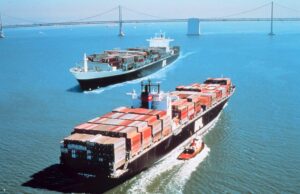by The Cowl Editor on December 5, 2019
National and Global News

by Matthew Mazzella ’20
News Staff
On Monday, December 2, President Donald Trump announced the implementation of tariffs on steel and aluminum goods from Brazil and Argentina. The move to impose these fees will break a previous agreement established between the U.S. and the two countries and adds to the global trade war that is currently being fought with China.
In 2018, the United States reached an agreement with Argentina and Brazil regarding the amount of steel they would be able to import into the United States, but this move shows that neither country was safe from Trump starting a trade war.
President Trump shared the following statement in a tweet on Monday explaining the sudden move to implement tariffs. Trump tweeted, “Brazil and Argentina have been presiding over a massive devaluation of their currencies, which is not good for our farmers. Therefore, effective immediately, I will restore the Tariffs on all Steel & Aluminum that is shipped into the U.S. from those countries.”
While it is unknown why the President reversed the agreements from 2018 so abruptly, it is believed that the Brazilian currency falling to an all time low last week and Argentina’s economic crisis have led to America restricting the amount of business done with the countries. If the tariffs are upheld, they will impose damage to South America’s largest economies. Currently Brazil is struggling with high unemployment while Argentina is in the midst of a recession.
While this seems like a move that will benefit the American economy, specifically steel companies across America, other industries will end up having to pay more for the steel they need to purchase from outside the country. American manufacturers of automobiles and machinery products are slated to pay more for the materials they must use for production.
Many financial analysts believed that Trump would scale back on creating trade tensions in order to stabilize the economy enough to win him a second term. Monday’s new trade tensions are starting to prove this theory wrong and is pointing towards the belief that these tariffs can be a continuous part of the President’s term in office. On Tuesday, Trump warned that the trade wars could go beyond the 2020 election, sending the Dow Jones Industrial Average down more than 400 points.
This move follows a myriad of unpredictable moves by the Trump Administration and adds a few more names to the list of participants in the trade war. Time will tell what the effects of these tariffs will be and the implications they will have on world markets and economies. It has become abundantly clear that the President wants to keep production of goods on home soil, but this is coming at the expense of other countries and businesses through the implementation of tariffs on imported and exported goods. Trump’s adamancy on imposing tariffs on foreign goods has sent markets into extremely volatile conditions, as each tweet can have a positive or negative effect on the stock market on any given day.